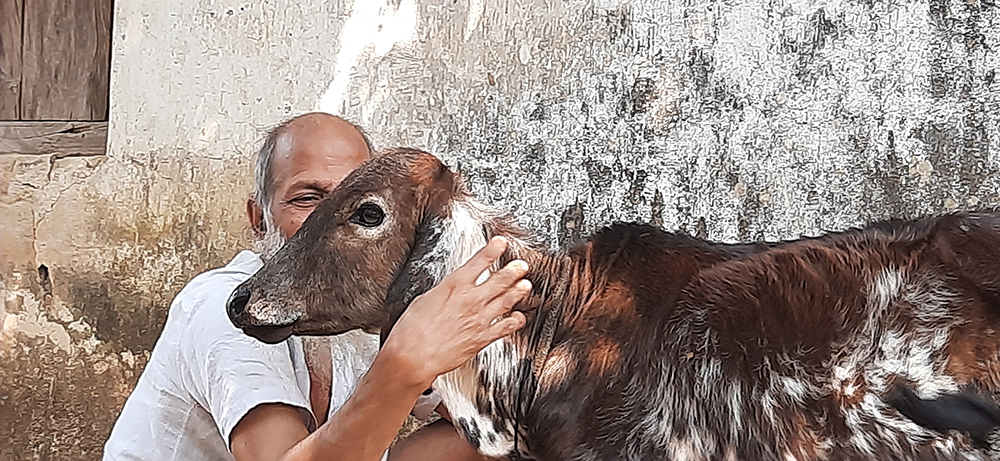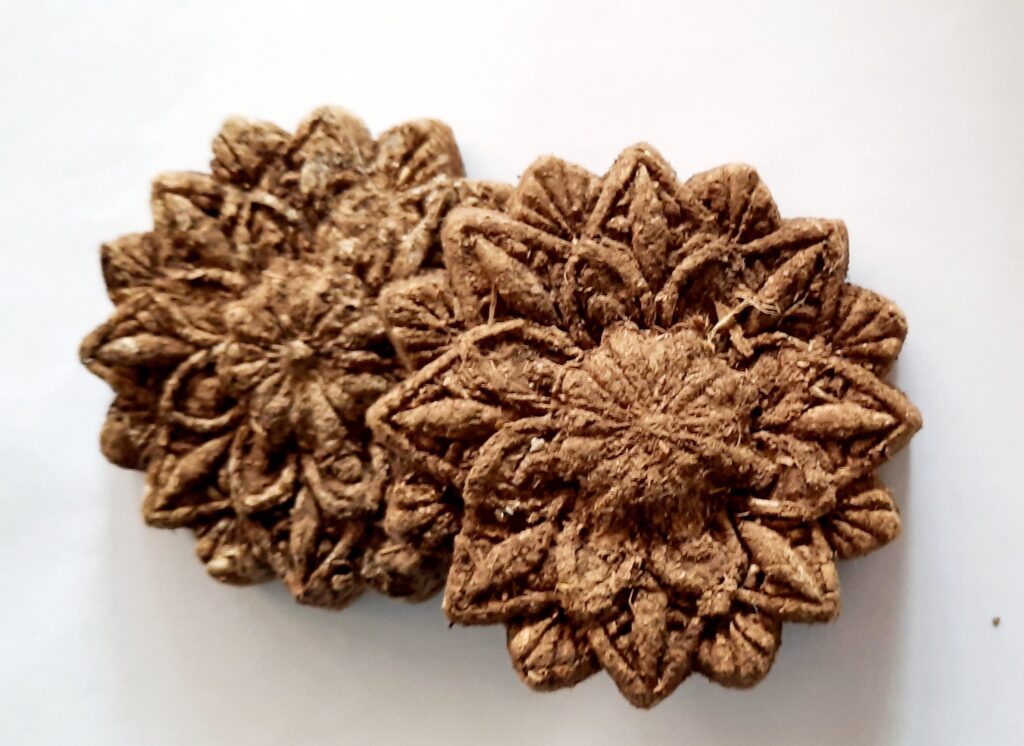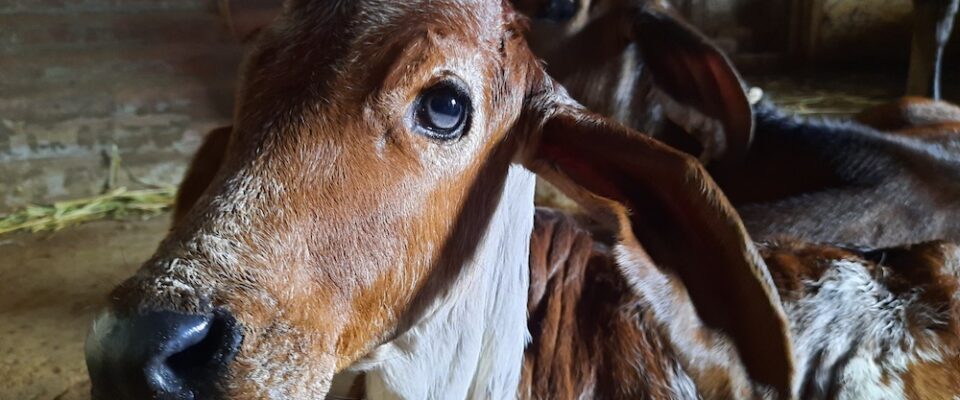Cows
The issue of cow protection was addressed by Vinoba and Gandhi by confronting the problem of the leather industry head on. Vinoba believed that until the need for leather existed, cows would continue to be slaughtered just for their skin. The task of removing the hide of the cows was generally assigned to the lowest castes who were considered untouchables. To address this problem, Gandhi and Vinoba both suggested that upper caste people should be trained to skin dead cattle. This was a radical reform of the caste system hierarchies. In doing so, they were questioning the power dynamics between the upper and lower castes in the communities. Vinoba suggested that a Charmalaya – a unit to remove the hide must be established close to where the cows lived so as to enable a quick transport of the dead cows to the unit.
Cow care
At Gagode, the Janmasthan Pratishthan has several cows that they host. Some of these cows are old and non productive. The cows were traditionally left out daily to roam in the forests but lately, this practice has led to the theft of a few cows. The presence of the cows on the campus is an important aspect of the ashram life associated with Goseva and needs to be supported.
Currently there are eight cows in residence at the Janmasthan. Four of these are males and four females. The cow dung generated by them is an important resource. A biogas plant has been installed which uses cow dung for producing biogas and the slurry is used as fertilizer which has enabled to grow organic food. The Goshala has therefore contributed in improving fertility of the farm. The bulls also help partially with the ploughing. The Janmasthan has a raw dung plastered flooring ever since it was built for which the cow dung comes from the Goshala.
Cow protection
In 1982 Vinoba asked his disciples to start a Satyagraha in front of Deonar slaughterhouse with a demand for an Act of complete prohibition of the slaughter of domesticated animals. He sent Achyut Deshpande to lead this satyagraha, who was a liberal thinker and a freedom fighter. Later he was to become the president of the Vinoba Janmasthan and he was accompanied by other trustees in this effort of Govansh hatya bandi.
Gandhi and Vinoba have explained the difference between cow care and cow protection very specifically. Since cows are also slaughtered for extracting leather, they need protection alongside care. To achieve this, Gandhi and Vinoba advocated that leather be made from the skin of animals who had died a natural death. In this way, we may be able to avoid the killing of cows specifically for the leather industry. However, for this to be practically implemented, the extraction of the leather had to happen close to the location where the cows were being sheltered and raised, i.e. in a decentralized manner. Goseva involves the nurturing and raising of the cows and Gorakshan involves saving them from slaughter.
Along with cow protection the leather extraction work is also connected to the value of anti casteism. Traditionally the work of extracting leather was assigned to lower castes since it is unpleasant. This activity hence deepened the divide between castes – Vinoba’s insistence that everyone should help with Goraksha also was a way of challenging this traditional divide.
The community at the Vinoba Janmasthan continued to be involved in both Goseva as well as Goraksha. They get milk, ghee, fuel (biogas), fertilizers, plastering material from the Goshala and if any animal dies their skin is also extracted here.

Interactions with the cows and the calves are the most memorable aspect of a visit to the Janmasthan. Love and respect for all forms of life are fundamental to the teachings of Vinoba.
COW DUNG PRODUCTS

To enable the upkeep of the cows that are older and non productive, the Janmasthan community is developing cow dung products that can help generate an income for the cows.
The first of these products has been developed in association with the eCoexist Foundation – these are small cow dung cakes called ‘Gorvara’ – that can be burnt at home during yagnas and poojas.
To purchase these cow dung cakes please contact us at: [email protected]

